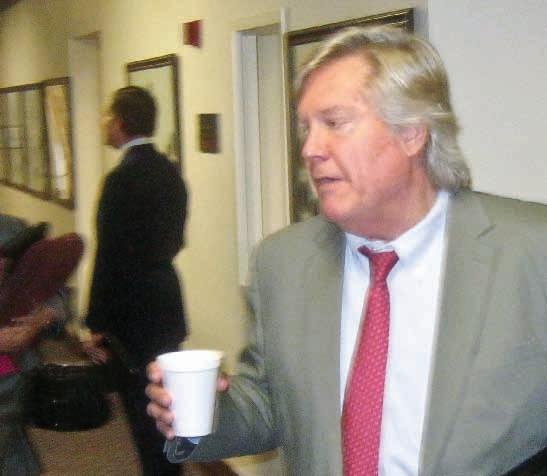
9 minute read
News
from June 27, 2013
Health fair planned
There will be a free health fair in downtown Reno on July 13. Basic medical screening and general checkups will be available free in City Plaza, the concrete slab located where the Mapes Hotel used to be.
Advertisement
The fair will run from 10 a.m. to 5 p.m. It is being conducted by Duwell Medical, a health care network.
Hospitals price power probed
The Obama administration, which has focused its attention on waste as a way of holding down costs in the new national health care program—called the Affordable Care Act (ACA)—is under growing criticism from analysts for ignoring hospital mergers and consolidations, which drive up costs, and hospital purchases of medical practices, both of which have been factors in the Reno/ Sparks market.
In a February Time magazine cover story, Steven Brill described the consolidation and acquisition problems. Last week Eduardo Porter wrote about them in the New York Times. Columbia Journalism Review health care reporter Trudy Lieberman wrote last week, “And the ACA indeed did not tackle a hard one—the growing concentration and power of hospital systems and the physician practices they increasingly own, which gives them the leverage to control the price of care.”
Renown Hospital in Reno was formerly a publicly owned freestanding hospital. It is now part of an out-of-state chain. St. Mary’s Hospital, once a local Catholic hospital, is now owned by Prime Healthcare, another out-of-state chain.
“If there is one thing that economists know, it is that market concentration drives prices up—and quality and innovation down,” Porter wrote. “Research by Leemore S. Dafny of Northwestern University, for instance, found that hospitals raise prices by about 40 percent after the merger of nearby rivals. Other studies have found that hospital mergers increase the number of uninsured in the vicinity. Still others even suggest that market concentration may hurt the quality of care. Indeed, for all the emphasis on curbing waste, recent evidence suggests that health care costs are not being driven by intensive use of high-tech procedures as much as by rising prices for even the most humdrum treatments, which are today among the most expensive in the world.”
In Reno after Renown bought out two cardiac practices and put their surgeons on hospital staff in 2010 and 2011, the hospital controlled nearly all the cardiac surgeons in the valley. The Federal Trade Commission found that “competition for adult cardiology services was effectively eliminated” in this market and last year ordered Renown to release some of its staff cardiologists from “non-compete” contracts and allow them to join outside practices. Before acquiring the practices, Renown had no cardiologists on staff.
But there is not likely to be a remedy like that for most private practice acquisitions because most acquisitions are of family care practices. One prominent Reno physician said, “It’s very common. Yes, yes, it’s happening all over the place. The most of them are primary care practices and Renown has picked up a bunch, and Saints [St. Mary’s] has done some. Carson Tahoe’s done a bunch.”
Innovative mortgage plan launched
The city of North Las Vegas has launched a novel experiment to try to help hard-pressed homeowners. It is employing the city’s power to condemn property to seize home loans for underwater homes.
The city will then pay mortgage investors less than the full value of bad home loans.
The program was launched in partnership with Mortgage Resolution Partners (MRP), a California program that refinances home loans seized through eminent domain. It will charge the city a fee for each loan and each side will accept a cut on the margin between the original mortgage and a new Federal Housing Administrationguaranteed loan.
The North Las Vegas City Council approved the plan June 19 on a 4-1 vote.
—Dennis Myers

Money talks
Democrats are in ascendancy, but are leaving their party behind
Ten years ago, it was unlikely that anyone would have imagined that within a by decade, the Nevada Legislature would Dennis Myers give fair and respectful hearings to gun control, marriage equality, marijuana, treating mining equally in tax law, and a number of other issues— much less actually enact them. But that’s what happened this year. “I thought it was fantastic, because we didn’t raise taxes but we did amazing, progressive legislation, things that I’ve been looking for all my career,” said Clark County Sen. Richard “Tick” Segerblom. Segerblom himself was one of the 2013 legislative session’s prime movers, succeeding in advancing
Sen. Tick Segerblom Clark County Democrat
two constitutional amendments—one to repeal the tax cap enjoyed by the mining industry, the other to repeal the ban on marriage equality. The mining tax amendment will appear on the ballot in 2014, marriage amendment in 2016 if it is approved by a second legislature. An expected U.S. Supreme Court ruling on the issue this week could be a factor, but would not necessarily stop repeal from going forward.
In earlier legislatures, Segerblom said, “We could not even get a hearing on medical marijuana. We could not get a hearing on marriage equality. We were told by [legislative leaders] that they were too controversial. That happened on gun control. This time we have the hearings, we passed them, the governor vetoed in some cases, but it was unbelievable.”
Segerblom argues that the demographic changes that have given Democrats greater strength in the legislature show no sign of abating.
“If you look at the demographics, Hispanics and Asians, those are very young populations. By the end of this decade, we’re going to have majorities in both houses. I do think we will have a Democratic governor.”
He said, “We’re going to be like California,” in the sense that the party will have supermajorities in both houses of the legislature.
He said the only thing that keeps the Democrats from being competitive in the next governor’s race against incumbent Republican Brian Sandoval is money. Sandoval has already piled up a huge campaign treasury. If the Democrats had the money to draw a contrast on issues, Segerblom said, a Democratic candidate for governor could show the public that Sandoval is out of step with the populace. That would make the Republican vulnerable, Segerblom believes.
“I do, because I don’t think he’s going to be able to support SJR [Senate Joint Resolution] 15, which is a big issue in Nevada. He’s wrong on gun control. He’s sat on his hands on education.”
SJR 15 is the amendment repealing favored tax treatment of mining.
Segerblom said the public doesn’t know Sandoval’s “view of the world and Nevada,” but could be informed “if we could compete financially.”
Why can’t they?
“Because in a gubernatorial election, turnout is just so far down the powers-that-be realize he has a lock.” That prevents big donors from investing in what they assume is a losing Democrat, Segerblom suggested.
Sen. Tick Segerblom, who led the charge on two major legislative issues this year, chats with a reporter outside the Senate hall.
The water’s edge
But if this legislature was progressive on social and cultural issues, there was a threshold beyond which the lawmakers would not go—an economic threshold. And that did not show much progressive. The lawmakers did little that might upset the business community—particularly big business—and a great deal to please it. Regulation of NV Energy was reduced. Hollywood got a tax break. Big casinos got help against little casinos.
It was startling that it was Democrats who proposed these changes for big special interests. It put Republicans in the unusual position of taking normally Democratic stances— as when right wing Washoe legislator Ira Hansen offered an amendment to stop Democratic efforts to lighten regulation of NV Energy.
There was a time when rigorous scrutiny of utilities was a Democratic article of faith. It defined the Democrats for generations. Las Vegas reporter Steve Sebelius wrote that Hansen’s “often-incendiary comments occasionally contained nuggets of sensibility. But it was his late-session advocacy against an establishment-backed fuelswitch bill sought by NV Energy that, while unsuccessful, once again contributed to the 2013 session’s incongruous image of Republicans advocating for the little guy while Democrats sided with big corporations.”
How progressive can Democrats be on economic issues when Ira Hansen finds himself to the left of them?
Even when the lawmakers voted against the mining industry, the political risk was minor because all mining corporations are based out of state and all but one out of the country—plus those who work in mining are concentrated in areas that are already heavily Republican and thus non-competitive. Republicans had no fear of losing those areas, and Democrats had no expectation of winning them.
Can the Democrats be buddies with the big boys and still retain their appeal?
“It’s a difficult journey for them,” said political analyst Fred Lokken. “They’re assuming that the Republican party is going nowhere.”
As a result, Lokken said, Democrats are giving voters not their historic stances on issues, but a choice of Republicans or unRepublicans.
“You have a Republican Party dominated by their most conservative members—or the Democrats. It’s a choice that is fueling a growing level of disillusionment in Nevada.”
Lokken said that people registering non-partisan in the state is growing. When people leave a political party they are not necessarily looking to the other major party or to small parties.
He said what is happening in Nevada is similar to what the Clinton years did to the Democratic Party nationally, when it became more corporate-oriented and found it “highly lucrative.” Corporate money, he said, became the “hallmark of the Democratic Party.” And those kinds of tactics and strategies are being urged on state Democratic parties by national officials.
“I think there’s been an effort by the national party organization to have a conversation with the state parties, urging them to get into this kind of money,” he said.
With big money comes changes in party policies, and it shows up in legislative voting records. The Democrats are trying to see “how far they can push it” without alienating their base, Lokken said.
That disconnect is at the heart of low voter turnout, Lokken said. When voters are questioned about why they are disillusioned, they give many reasons, but the number one reason, he said, is that “this party system doesn’t represent anyone in the country anymore.”
Both political parties, he said, are in the grip of a “huge uncontrollable addiction, and they’re unwilling to enter a 12-step program.” Money has become everything. Both Republicans and Democrats opposed legislation proposed by Secretary of State Ross Miller to require late campaign financial disclosures, he pointed out.
“Even lowly local races have become insanely expensive,” Lokken said. Ω
Fred Lokken Political analyst
The good times roll

Children line up at a roller rink in Reno. They’re all participants in Vacation Station, a city summer program that includes swimming and other sports, movies, arts and crafts. It’s headquartered at the Mount Community Center.












